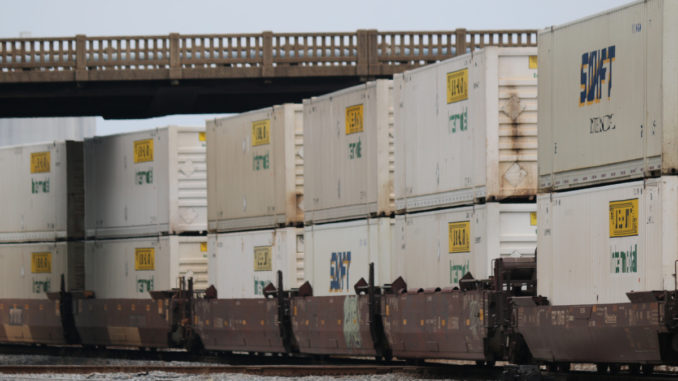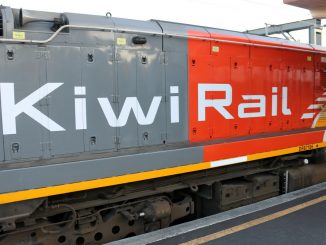
The Greenbrier Companies said it has halted production of new railcars at its Greenbrier Gunderson flagship manufacturing facility in Portland, Oregon, because of COVID-19.
Last week, Greenbrier Gunderson stopped production on its double-stack intermodal line, a manufacturing line that has run nearly continuously for 25 years, the company said.
The company said it had to take action because of a surplus of intermodal units in the North American rail fleet and a decline in intermodal rail loadings.
“It is difficult to part with Greenbrier Gunderson workers who have served us for many years and persevered through this and other national emergencies,” William A. Furman, chairman & CEO of The Greenbrier Companies, said in a news release. “Going forward, we intend to identify opportunities to profitably build railcar products at Greenbrier Gunderson.
“Meanwhile, we plan to keep and deploy some of our most experienced team members to other locations in our network, where different kinds of railcars are built,” Furman added. “Current conditions require us to simplify and streamline our organization to increase total liquidity from $620 million at the end of the fiscal second quarter to $1 billion by the end of fiscal 2020.”
Greenbrier Gunderson’s current food-grade refrigerated and insulated boxcar line will close in July when the current work-in-progress wraps. However, that line may restart after the current crisis subsides. Workforce reductions at Gunderson will affect approximately 200 employees, including production workers and office staff.
Greenbrier said it made the adjustments in its production and staffing levels because of current and anticipated levels of new freight railcar demand, along with its earlier announced plans to cut costs and strengthen its balance sheet globally. Greenbrier will continue to operate its Jones Act-compliant marine business.
“The safe and efficient movement of goods is integral to economies around the world,” Furman said. “Rail transportation is essential for supply chains in light of the COVID-19 crisis, providing smoother and safer border crossings and reducing the risk of viral transmission by human contact.
“Rail is more environmentally efficient than other modes of freight transportation,” Furman added. “Its limited use of fossil fuels benefit society and the planet by producing about one-third of the hydrocarbons per ton-mile as compared to trucks, and consuming about one-third of the fuel per ton mile. It will play an important part in any economic recovery, both near-term and longer-term, when greater stability and predictability has resumed.”



